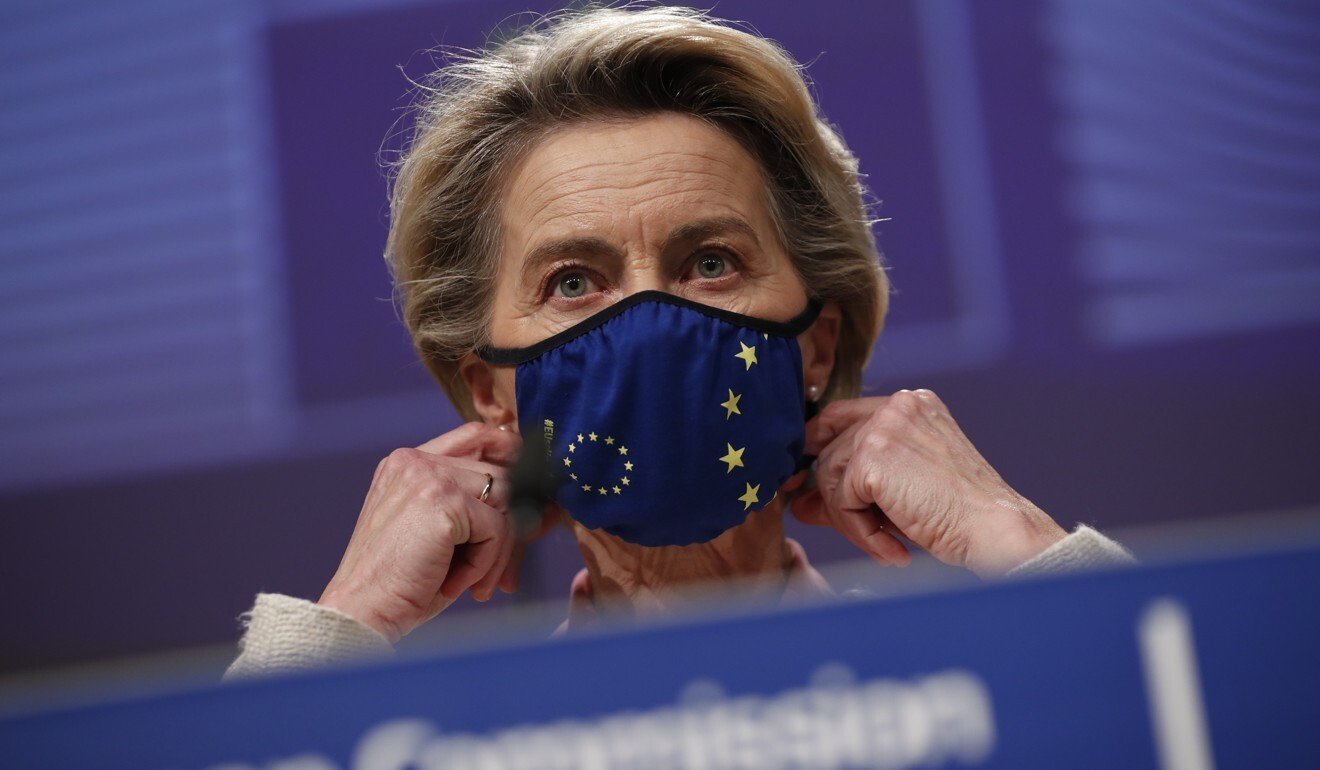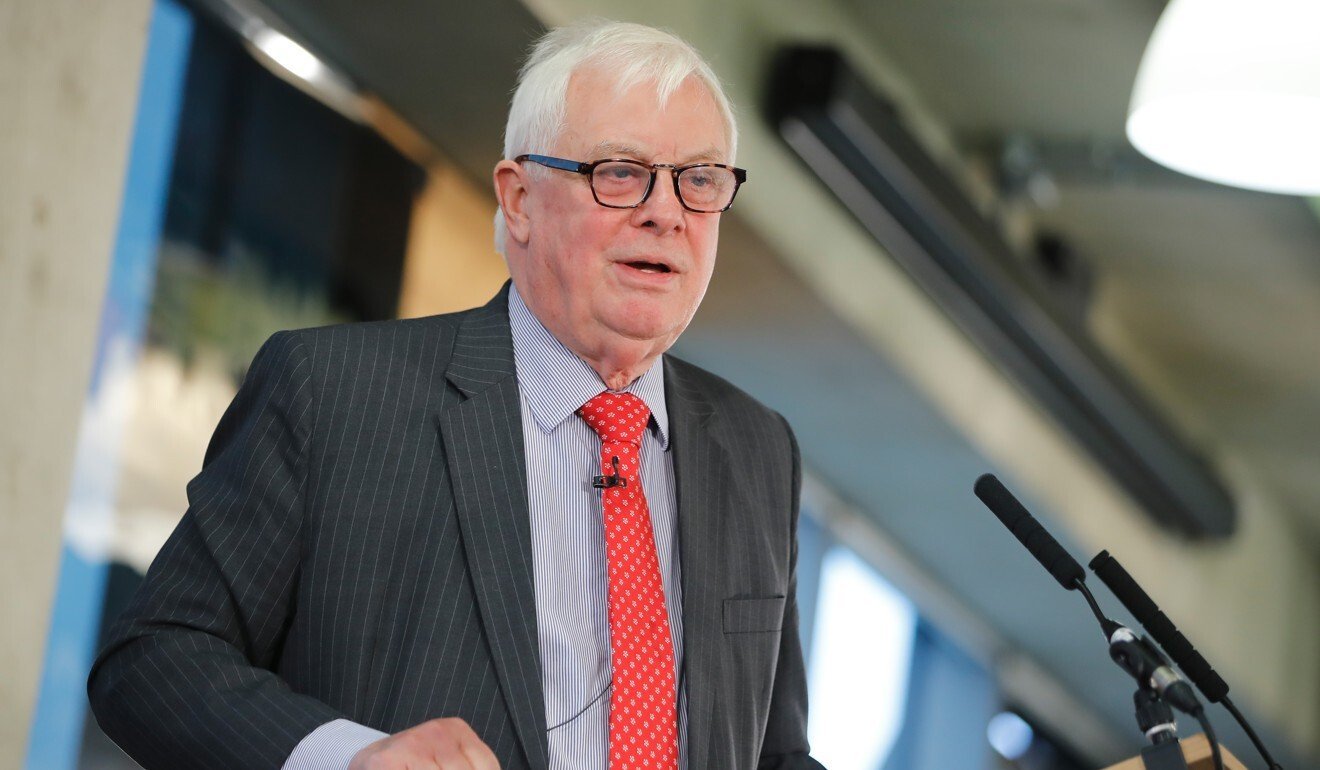
European Parliament members say Hong Kong arrests threaten EU-China deal
The EU-China investment deal, tentatively reached just last week, faces a new hurdle as a growing number of European Parliament members expressed concern Wednesday over the mass arrests of pro-democracy politicians in Hong Kong.
“The situation in Hong Kong is followed closely by parliamentarians,” said Bernd Lange, head of the EU parliament’s trade committee, which will be responsible for reviewing the deal later this year.
“Concerns about political freedom and human rights have played a prominent role in past debates on trade policy and will surely do so in the case of the CAI,” he added, referring to the comprehensive agreement on investment.
The European Union’s executive branch, the European Commission, was still keen to get the deal done, saying that “engagement” with China on other issues like climate change remained crucial.
The commission concluded the investment agreement with Chinese President Xi Jinping on December 30, but the deal – the full text of which is still not available for public view – must be approved by the European Parliament.
The prospect of that approval, however, was complicated by the Hong Kong police’s arrest of 53 pro-democracy lawmakers and politicians
earlier on Wednesday.
The police used the subversion clauses under the national security law, imposed on Hong Kong by Beijing last year, to round up the democracy advocates.
Those arrested stand accused of trying to overthrow the Hong Kong government by organising an unofficial primary election ahead of last September’s now-cancelled legislative elections, hoping to get a majority of the seats.
The mass arrests, Lange said, “mark a violation of the spirit of the EU-China investment deal’s sustainability commitments”, which include human rights.
“This is clearly not a basis for constructive cooperation.”
“It is difficult to understand how China and the EU can claim to share and advance common values when we look at the current situation,” Lange added. “No one should make the mistake of assuming there are built-in majorities for any deal.”
Guy Verhofstadt, a prominent EU Parliament member and former Belgian prime minister, went even further, saying the parliament “will never ratify the China Comprehensive Agreement on Investment without commitments and proof that the human rights of Hongkongers, Uygurs and Tibetans improve”.
Raphael Glucksmann, a parliament member from France, tweeted: “Democracy in Hong Kong is dying before our eyes, and the priority of our dear European leaders is to sell us their investment agreement with Beijing.
“How can we be so out of time?”
Anna Fotyga, one of five co-chairs of the EU Parliament’s Hong Kong Watch group, called on the EU to launch an impact assessment on the EU-China investment deal, analysing the effect the agreement will have on human rights, particularly in Hong Kong, Xinjiang and Tibet.
The European Commission however, has continued to insist on the need to ratify the deal, which it said could provide European businesses unprecedented access to the Chinese market.
It argued that human rights should be treated separately from trade and investment issues.
“The agreement on investment itself is not the appropriate instrument to deal with a complex country with which we also therefore have complex and multidimensional relations. So we have a sectoral agreement in the area of investment,” Eric Mamer, the commission’s chief spokesman, said.
“We have a separate line of dialogue with China on the rule of law, democracy,” Mamer said. “Clearly, we are working with China in a different way in different areas.”
Commission President Ursula von der Leyen, he added, “has stressed how important it is to work with a country like China in the area of climate change”.

The European Commission has previously reassured lawmakers that the EU would continue to coordinate with the US on policies regarding China – even though it snubbed a request by President-elect Joe Biden’s national security adviser for Europe to consult Biden prior to the December 30 conclusion of its negotiations with China.
EU officials above the spokespeople’s rank have not addressed the latest situation in Hong Kong.
Britain’s foreign minister Dominic Raab said that the arrests “demonstrate that the Hong Kong and Chinese authorities deliberately misled the world about the true purpose of the national security law, which is being used to crush dissent and opposing political views”.
Antony Blinken, Biden’s pick for US Secretary of State, decried the arrests as “an assault on those bravely advocating for universal rights.
“The Biden-Harris administration will stand with the people of Hong Kong and against Beijing’s crackdown on democracy.”
And Britain’s foreign minister Dominic Raab said that the arrests “demonstrate that the Hong Kong and Chinese authorities deliberately misled the world about the true purpose of the national security law, which is being used to crush dissent and opposing political views”.

Chris Patten, the last British governor of Hong Kong and former EU commissioner for external relations, condemned the EU-China investment agreement in light of the events in Hong Kong.
“If this deal goes ahead it will make a mockery of Europe‘s ambitions to be taken seriously as a global political and economic player.
“It spits in the face of human rights and shows a delusional view of the CCP‘s trustworthiness on the international stage,” Patten said.
Patten also called it “a massive strategic blunder” at a time when Biden would be seeking to assemble an international partnership of liberal democracies to “deal with the bullying loutish behaviour and assault on our international rules by Chinese Communists”.











